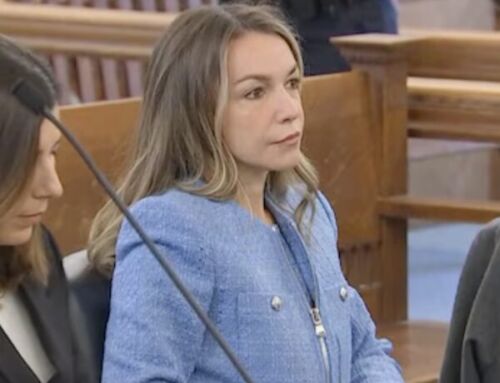Last week, the Massachusetts Senate voted to pass a new police reform bill with a 30-7 approval.
The bill would ban police from using chokeholds, create an independent oversight board, and certify officers. Additionally, guidelines would be created for use of force and also requires police to intervene if excessive force is used by another officer. It also clarifies the use of qualified immunity, which protects government employees from legal claims.
Now legislation will take the floor of the Massachusetts House of Representatives this week. House leaders solicited and received thousands of emails offering testimony and feedback on the legislation. You can read the full bill here.
As part of this bill, a seven-person Massachusetts Police Standards and Training Commission that would serve as the “primary civil enforcement agency” in the state would be created.
Similar to the senate bill, the House’s legislation bans chokeholds, tear gas and “no-knock” warrants with some exceptions, but it also has some differences from the Senate. One of the biggest differences is that the House version will not limit when qualified immunity applies unless the officer involved has been decertified by the proposed police standards and training commission.
So what exactly is Qualified Immunity
It’s the doctrine that states police officers can’t be held accountable in lawsuits unless their misconduct is illegal.
The House legislation keeps the state’s qualified immunity law pretty much intact but adds the following: An officer would not have immunity to civil liability for “any conduct under color of law that violates a person’s right to bias-free professional policing” if it results in his or her decertification.
Who is opposed limiting qualified immunity?
Well, police and police unions. They believe limiting or getting rid of qualified immunity puts them at risk of lawsuits. “Qualified immunity doesn’t protect officers who break the law or violate someone’s civil rights. Qualified immunity protects officers who did not clearly violate statutory policy or Constitutional rights,” stated Adam Hakkarainen, a Massachusetts State Police trooper via email to House leaders (via Mass Live), just one of thousands of letters and feedback sent to the House re: this topic.
Who is for limiting qualified immunity?
Advocates for police reform. According to Mass Live, Carol Rose, executive director of ACLU of Massachusetts said via statement, “Good police officers should have no objection to holding bad police officers accountable.” She added, “Legislators should stand in solidarity with the people they are elected to serve and who are marching in the streets to demand systemic change.”
It is expected the House will take a vote on the bill on Thursday.
Maureen Dahill is the editor of Caught in Southie and a lifelong resident of South Boston sometimes mistaken for a yuppie. Co-host of Caught Up, storyteller, lover of red wine and binge watching TV series. Mrs. Peter G. Follow her @MaureenCaught.




